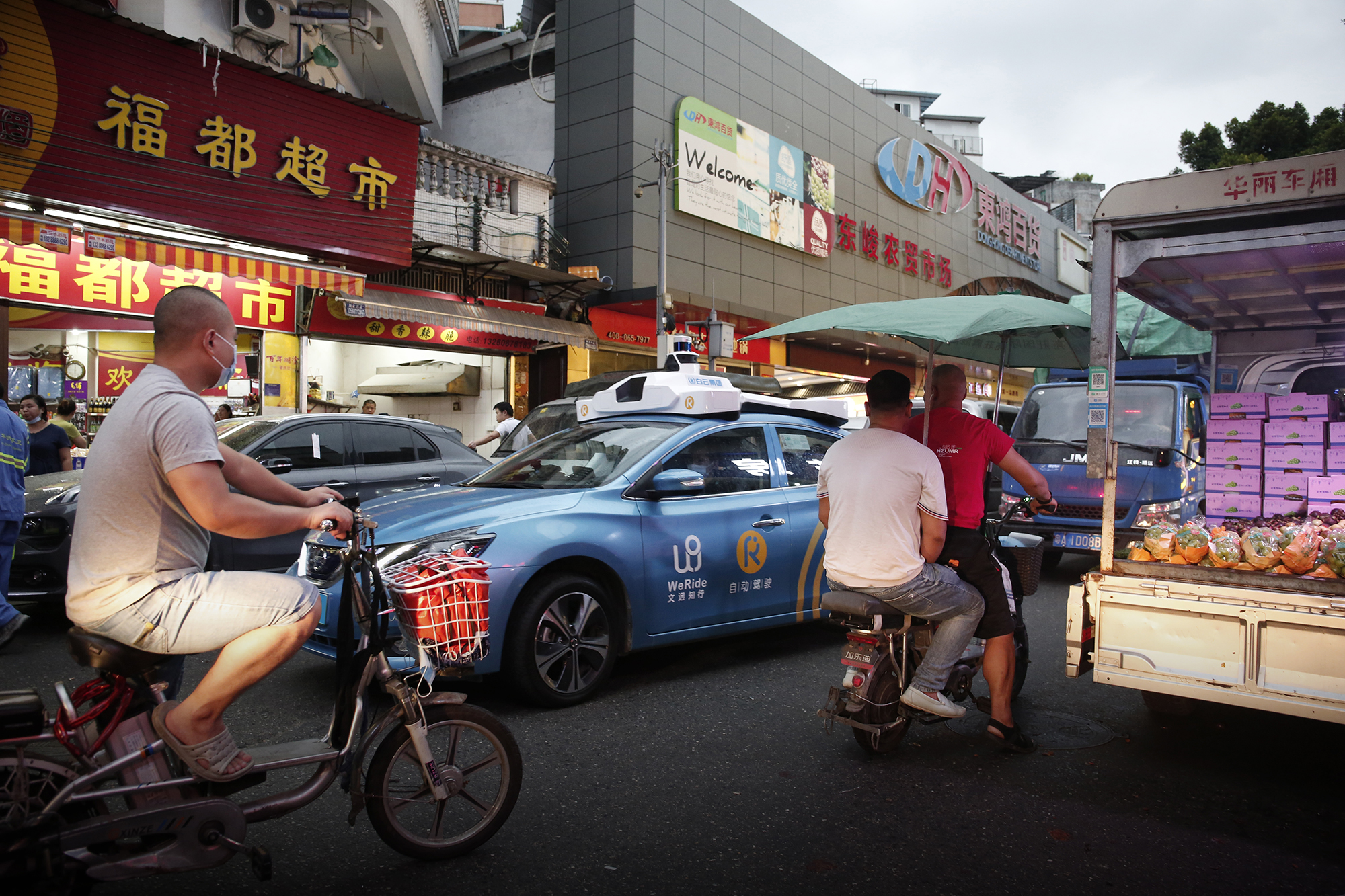WeRide, a company developing self-driving taxis, confirmed with KrASIA on Thursday that the company released several vehicles into the chaotic streets of a densely populated district of Guangzhou for testing several months ago.
While not specifying the exact location, the company indicated the neighborhood is lined with food stalls, packed with vehicles of all shapes and sizes, crowded with pedestrians, and notably absent of conventional traffic control methods like lights and lanes.
WeRide will keep testing its vehicles in the area for some time, but they will not pick up or drop off passengers inside the township for the time being, a spokesperson confirmed to KrASIA on Thursday.
Vehicles or pedestrians that move against traffic rules or unpredictably have proved to be the biggest challenge for autonomous driving vehicles, the company said in a press release on Thursday. These conditions, where driving is even difficult for human drivers, “is a very valuable area for us as it could help train our autonomous driving vehicles with plenty of extreme cases,” the spokesperson added.
WeRide, founded in Guangzhou, has already been transporting passengers in the city with its robotaxi fleet since November 2019. Anybody in a designated region covering an area of about 145 square meters in Guangzhou can hail a self-driving cab via the WeRide Go app, and there have been no accidents since the launch of the service, according to the press release.
On the same day,China’s largest search engine Baidu (NASDAQ: BIDU) has opened applications for test riders of its robotaxis in Beijing, becoming the first company to provide such service in the Chinese capital, according to a press release also on Thursday.
Baidu’s 40 robotaxis can pick up or drop off passengers in hundreds of spots in Daxing, Shunyi, and Haidian districts in Beijing, which together represents the widest area for robotaxi testing in the country.
The tech giant first rolled out its robotaxi services to the general public in Changsha, Central China’s Hunan province in April this year, and later ventured into Cangzhou, North China’s Hebei province. These moves make Baidu the only company to run robotaxi fleets in different cities in China. WeRide, currently, only operates in Guangzhou, while AutoX and Didi run their unmanned fleets in Shanghai.
Read this: Dreaming of a driverless future, but for now, humans are still in the driver’s seat
Learn more: Video | Five Chinese autonomous driving companies to watch in the next few years
